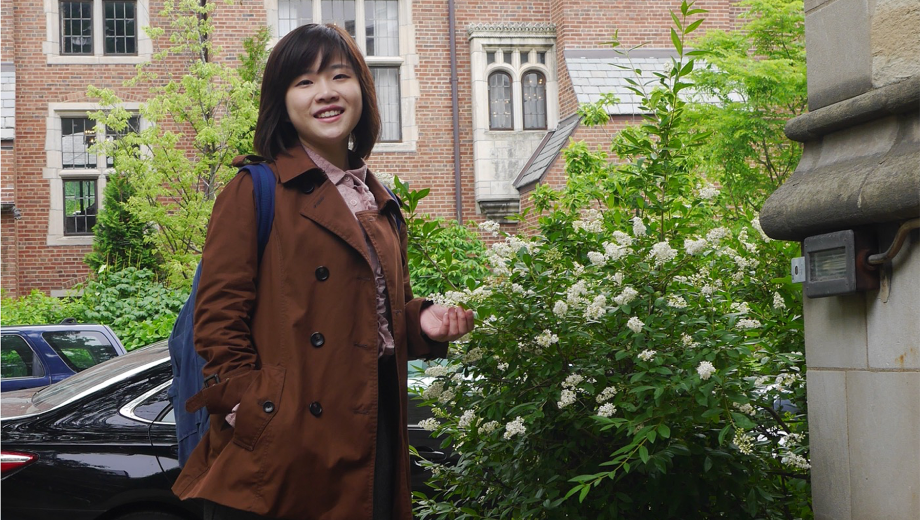Jiarui Sun, a graduate student in East Asian Languages and Civilizations, is thinking about exclamation points and animated rabbit videos.
In the 1920s, the exclamation point was integrated into the Chinese writing system as part of the New Culture Movement’s effort to make written text more accessible. Historically, written Chinese had relied on grammatical structures like phrases at the end of the sentence to convey tone.
Almost a hundred years later, an animated Chinese webcomic titled (in English) Year Hare Affair appeared online. Literally translated as “those stories of that rabbit that happened in those years,” the series tells the history of modern China using animals—rabbits represent Chinese people—from a pro-China viewpoint. As viewers streamed it on their devices, they could comment live; their comments scrolled across the screen in real time, a phenomenon called danmu in Mandarin.
The two events seem unrelated, but Sun sees exclamation points and danmu as similar forms of paralinguistic communication. She says they do not have literal meaning but are “understood as conveying feelings—and I’m interested in how that feeling gets conveyed and shared.”
Sun grew up in Wenzhou, China, and studied Chinese language and literature at Zhejiang University before coming to the United States for graduate school. A digital native (like most of her generation), she became particularly interested in nationalistic sentiment expressed on the internet.
Though online nationalism is not unique to China, its rapid development and ubiquity there cause concern about its impact on Chinese citizens. What interests Sun isn’t necessarily what people say about their political beliefs; she doesn’t consider her research to be about politics in the sense of “particular bureaucratic systems.” She’s more interested in doing “digital ethnographic work” on how internet users express their beliefs. “I really do observations and look at how interactions happen.”
For example, in a paper presented in 2021 at the Michicagoan Graduate Student Conference in Linguistic Anthropology, Sun examined the way the densely overlaid danmu in Year Hare Affair create feelings of patriotic “sentimental belonging and pride” that some might describe as nationalistic.
“Using cartoon animals to illustrate a narrative of modern Chinese history endorsed by the party-state,” Sun writes in the paper’s abstract, the series has been “framed by mass media as a ‘pioneer for cute patriotism’ popular among young viewers.” She examines how the design of the animation and live-comment function motivate viewers to comment, allowing them to help create the viewing experience.
Sun notes that danmu can lead people—reporters, casual observers, or even media scholars—to believe “that everyone in China is cheerleading for the state,” when in reality Chinese citizens have much more mundane concerns most of the time.
Because of the casual nature of social media, in China as in the United States, Sun says that when people post, “they don’t consider it so close to their identity. Certain kinds of categorical terms, like ‘nationalists,’ lose their analytical significance and end up little more than a dismissive label.”
Although Sun has not yet settled on her dissertation topic, she is interested in continuing to pursue questions of semiotics and ethnography. She chose UChicago largely because she wanted to bring an interdisciplinary perspective to questions of expression and interpretation, what she calls “a qualitative, more fine-grained approach to really look at the process by which people interact with digital media—or any other kind of media.”

